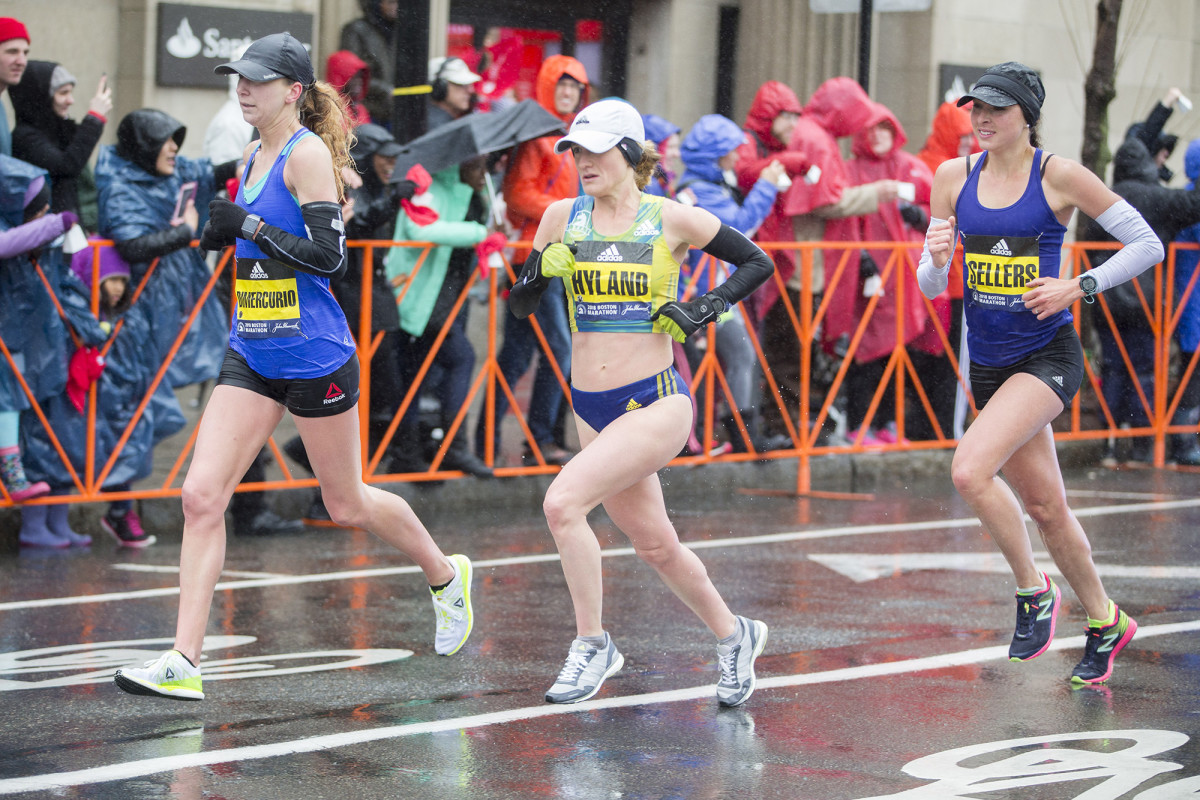Sarah Sellers Offers Advice on Training Like an Elite While Working a Full-Time Job

When an official told Sarah Sellers after last month's Boston Marathon that she had placed second, the 26-year-old amateur assumed she was runner-up in her age group—not the entire race. Training for a marathon requires discipline and time—a precious commodity for someone working four 10-hour shifts a week at a hospital. Sellers, a nurse anesthetist in Tucson, Ariz., would wake up at 4 a.m. to run. Then she'd train after work.
Juggling work, exercise and sleep is a challenge—but after her stunning performance in Boston, where she finished in 2:44:05, Sellers knows what it takes. If you're preparing for a race, take Sellers's advice on how to successfully balance a full-time job with a thorough training regimen.

1. Limit your options
The inventor of the snooze button obviously wasn't keen on morning exercise. Ahead of Boston, Sellers avoided the snooze trap by crafting a strict weekly training plan, ensuring she wouldn't vacillate every morning about whether to run. "When your alarm clock goes off, you just tell yourself you don't get to decide," Sellers says. "You already made that decision, and while you're sleepy and out of it, you don't get to remake the decision."
Something else that helped: Placing her alarm across the room and setting several alarms over a short period of time, guaranteed to annoy her enough to force her out of bed. Sellers reached her peak of roughly 100 miles a week by running both before and after work.
2. Don't let yourself crash
After a long day at work, the couch sounds a lot better than the gym. Sellers, who prefers morning to evening workouts, resisted that temptation by heading straight from the hospital to the track, avoiding the comforts of her house. "Once you go home, it's super hard to drag yourself out," Sellers says.
How Des Linden Beat Fatigue, Weather Conditions to Win the 2018 Boston Marathon
3. Take advantage of your fatigue
Though Sellers sometimes struggled to motivate herself after work, she saved her hardest workouts—like speed training—for evenings. "It gives you a mental advantage in competition if you're used to doing your hard workouts sometimes when you're mentally and physically kind of tired," she says.
4. Don't stop training at work
Sellers suggests finding ways to make your job a bit less sedentary. "Just make yourself stop sitting or whatever you're doing," she says. "I think you feel a lot better." Jog up some stairs, walk around the block—do something on your feet, even a few minutes every hour.
But if you don't have that luxury, you can still take advantage of the workday. Sellers suggests using idle moments for mental preparation, particularly if a difficult workout looms. "When you feel yourself getting nervous for a workout, just visualize yourself succeeding."
Perhaps most important is to fuel up: Sellers says she's "ravenous" after work if she doesn't eat enough during the day. That's not ideal for exercise. Make sure you're eating smartly during the day—breakfast and lunch, but also small snacks to spread out calorie intake. And don't forget to hydrate.
